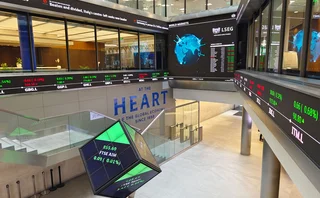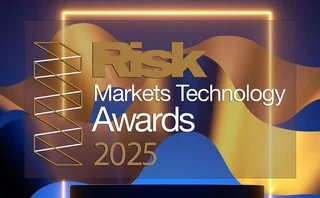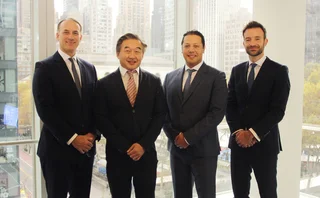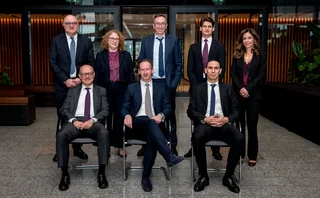
Structured products house of the year: Natixis
Asia Risk Awards 2017
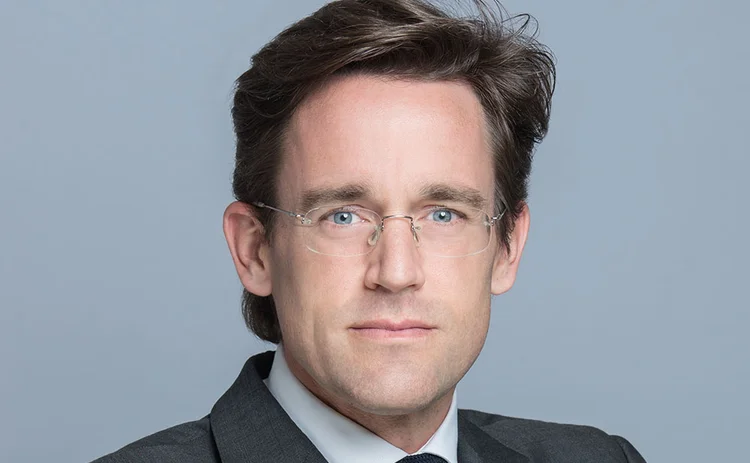
Natixis was a late entrant to the market compared with many of its competitors. The French bank has been restructuring and launching its equity derivatives practice over the past four years, with the aim not of having the largest market share in any one product but of being the leader in product engineering and innovation. This is why Natixis is named structured products house of the year.
So far, its approach has been rewarded, and in 2017 alone the bank has managed to trade with 102 new clients. In March, it opened its first Taiwanese branch, and aims to open an office in Korea next year.
“We came into the market after many big existing houses, so the only way to make a space and increase our market share is to differentiate ourselves. None of our clients or distributers needs another house just pricing more aggressively,” says Nicolas Reille, head of equity derivatives sales and financial engineering for Asia.
Reille says Natixis aims to “inspire the market” through its product innovation.
“You cannot be sustainable if you are doing the same thing as everyone else. We had no choice but to be disruptive, to be innovative – otherwise we cannot survive,” says Reille.
Just two months ago, the bank launched the first ever Korea Exchange (KRX) index specifically for autocallable products, the Kospi3. Natixis first approached the KRX two years ago about launching the index with exclusivity, following the success the bank enjoyed after it introduced indexes with Euronext and S&P Dow Jones.
The Kospi3 is designed to boost the yield of autocall products linked to the Kospi 200 equity index. It works by increasing exposure to the Kospi 200 through the use of the F- Kospi 200 index – which tracks the most liquid contracts on this index – to achieve capital efficiency, cost efficiency and maximise liquidity.
The process of developing the index and bringing it to market was complex, and relied heavily on Natixis’ ability to showcase its experience to the KRX.
“The index had to be simple but [the KRX] had their own constraints. For example, in the first version of the index they didn’t want to have some features. It didn’t fit into their own corporate culture. So we need to be able to marry their own view of the index with what we want to be able to obtain in terms of impact on the autocall market. So it was a very long discussion on the index,” says Reille.
Currently, Natixis is discussing with other exchanges in the region launching more indexes, and is the first bank to approach exchanges about collaborations.
Following the crash of the Hang Seng China Enterprises Index in 2015, which caused widespread losses on Korean autocallable products, a new type of structured equity-linked note known as a ‘lizard’ has made it on to the forefront of product innovation. Lizard autocallables include additional barriers across observation periods and offer investors the prospect of a higher coupon if all conditions are satisfied.
Natixis says it was not only the first to bring the product to market, but in keeping with its innovation-focused strategy, it has continued to evolve the lizard into double lizard and komodo dragon products, shortening the duration of the products to give investors more opportunities to get both the coupon and the principal back.
Natixis now has a 12% share of the Korean autocall market, and has sold around $400 million notional of the two products in the first three months of 2017.
Inspired by market conditions of low volatility, geo-political risk factors and risks inherent in the market, Natixis has developed the Reverso product with a guaranteed absolute return.
“We priced it on Hong Kong stocks, US stocks as well as European stocks to pitch it to distributors as well as institutional investors in Asia. It is gaining in momentum. Recently, we have seen more and more distributors looking at Reverso payoffs,” says Guillaume Calvino, head of financial engineering for equity derivatives, Asia-Pacific.
The product was engineered by Natixis’ team in Asia but is sold in Europe and the US as well as across the region.
“In the past two months, you can see many distributors now looking at these dispersion products. We were ahead of the demand for dispersion products, so we were able to pinpoint an opportunity there. We are very happy with the successful sale of this product to clients in Asia, and most importantly the very strong performance of the products. So we have clients coming back and investing into this product,” says Calvino.
The Reverso operates as a dispersion measure of a basket of stocks. The payout is such that, in any market conditions regardless of how the equity market moves, it will always be above zero. Reille says the low volatility in the market has been helpful in pricing the product
The bank is in discussions with a Taiwanese asset management company to launch a Reverso for the domestic market, with a formula created solely for this purpose.
“With Reverso, we came up with this interesting pay-off – we’ve received strong interest from clients and we are moving ahead with distributors in countries like Taiwan to do a massive launch,” says Reille.
He says this focus on innovation has contributed to the bank’s significant growth in Asia over the past few years. Natixis made 20 times more revenue in Asia between January and August 2017 than it did for the same period in 2014.
“We are the fastest-growing investment bank in equity derivatives in Asia. We are coming from a small base but we have grown significantly and we are today a large player in equity derivatives,” says Reille.
Only users who have a paid subscription or are part of a corporate subscription are able to print or copy content.
To access these options, along with all other subscription benefits, please contact info@risk.net or view our subscription options here: http://subscriptions.risk.net/subscribe
You are currently unable to print this content. Please contact info@risk.net to find out more.
You are currently unable to copy this content. Please contact info@risk.net to find out more.
Copyright Infopro Digital Limited. All rights reserved.
As outlined in our terms and conditions, https://www.infopro-digital.com/terms-and-conditions/subscriptions/ (point 2.4), printing is limited to a single copy.
If you would like to purchase additional rights please email info@risk.net
Copyright Infopro Digital Limited. All rights reserved.
You may share this content using our article tools. As outlined in our terms and conditions, https://www.infopro-digital.com/terms-and-conditions/subscriptions/ (clause 2.4), an Authorised User may only make one copy of the materials for their own personal use. You must also comply with the restrictions in clause 2.5.
If you would like to purchase additional rights please email info@risk.net
More on Awards
Clearing house of the year: LCH
Risk Awards 2025: LCH outshines rivals in its commitment to innovation and co-operation with clearing members
Best use of machine learning/AI: CompatibL
CompatibL’s groundbreaking use of LLMs for automated trade entry earned the Best use of machine learning/AI award at the 2025 Risk Markets Technology Awards, redefining speed and reliability in what-if analytics
Markets Technology Awards 2025 winners’ review
Vendors jockeying for position in this year’s MTAs, as banks and regulators take aim at counterparty blind spots
Equity derivatives house of the year: Bank of America
Risk Awards 2025: Bank gains plaudits – and profits – with enhanced product range, including new variants of short-vol structures and equity dispersion
Law firm of the year: Linklaters
Risk Awards 2025: Law firm’s work helped buttress markets for credit derivatives, clearing and digital assets
Derivatives house of the year: UBS
Risk Awards 2025: Mega-merger expected to add $1 billion to markets revenues, via 30 integration projects
Interest rate derivatives house of the year: JP Morgan
Risk Awards 2025: Steepener hedges and Spire novations helped clients navigate shifting rates regime
Currency derivatives house of the year: UBS
Risk Awards 2025: Access to wealth management client base helped Swiss bank to recycle volatility and provide accurate pricing for a range of FX structures
